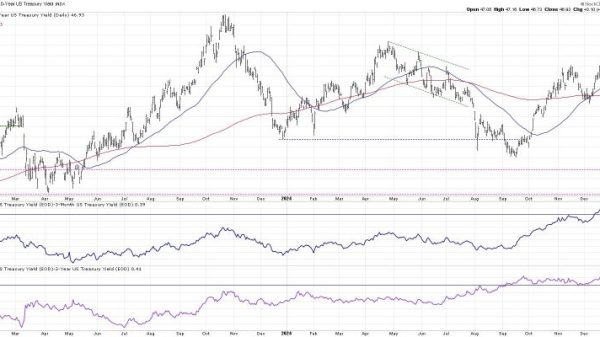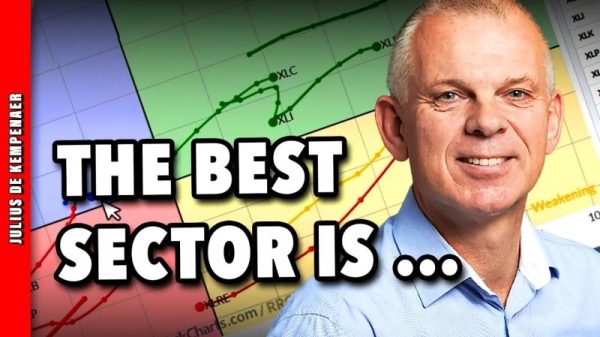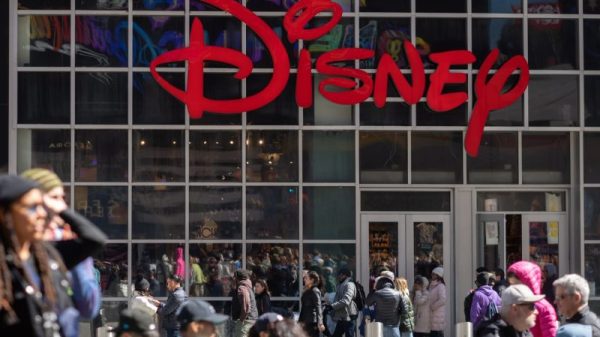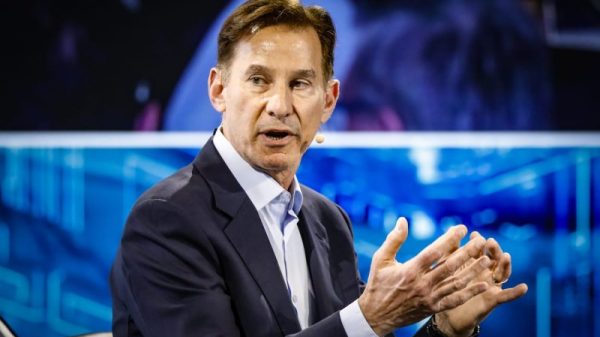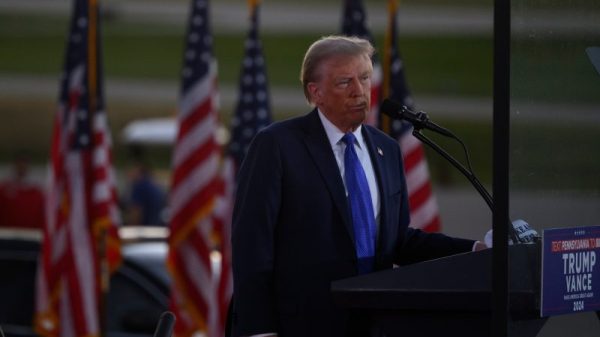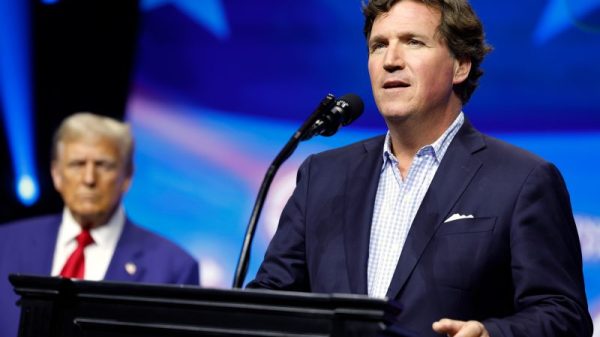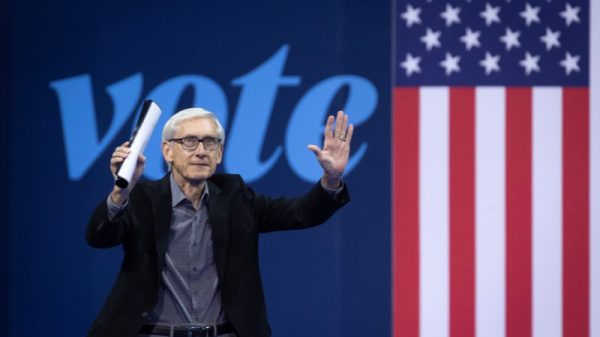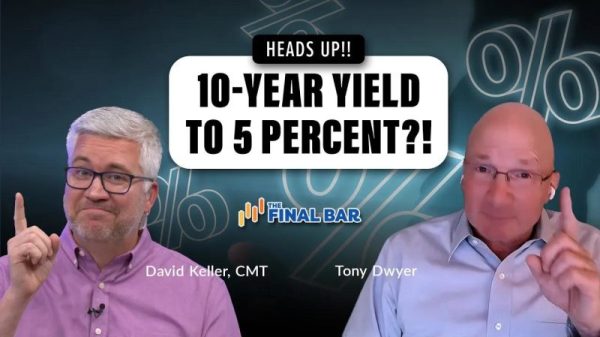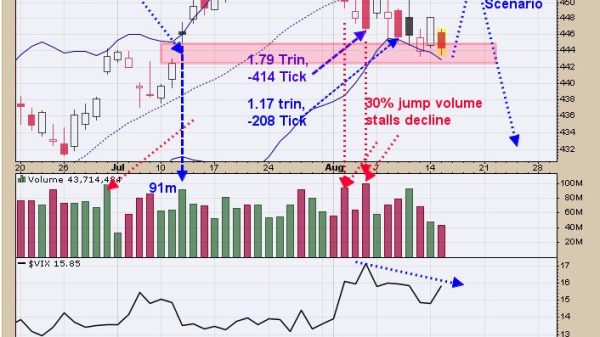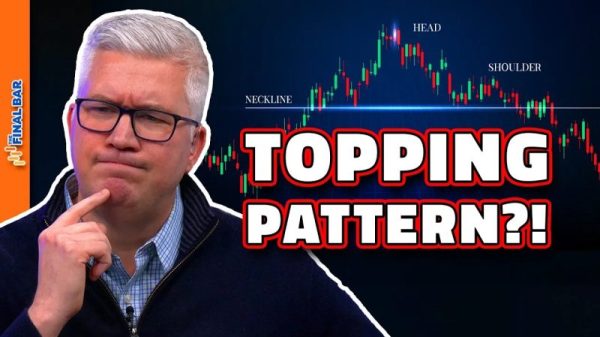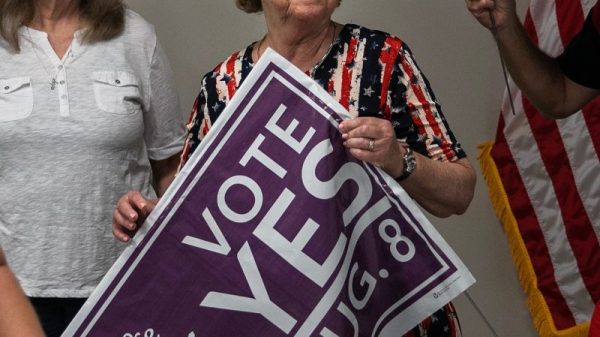On Tuesday morning, House Speaker Kevin McCarthy (R-Calif.) announced that he was authorizing an impeachment inquiry into President Biden.
In making the announcement, he delineated six predicates for taking the historic step. Each deserves additional context that McCarthy didn’t provide — context that often significantly undercuts the idea that such an inquiry is warranted.
It’s useful to acknowledge at the outset that impeachment is and always has been a centrally political act. The bar for impeaching a president is “high crimes and misdemeanors,” a phrase that constitutional scholars have enjoyed debating but which can be interpreted in a manner that means its application is limited almost solely by what leaders in the House think a majority of their members will support.
And, of course, by what their constituents will tolerate. Recent polling has established that the Republican base will tolerate McCarthy’s impeachment push quite easily. In polling conducted by SSRS for CNN, three-quarters of Republicans said they thought Biden was involved in his son Hunter’s business in a manner that violated the law — a belief that extends even beyond what McCarthy asserted Tuesday.
So let’s consider the speaker’s six predicates for the probe.
“Through our investigations,” he claimed, “we have found that President Biden did lie to the American people about his own knowledge of his family’s foreign business dealings.”
Biden has demonstrably misrepresented his son’s business activities, as The Washington Post has documented. But this claim contrasts Biden’s repeated denials about having discussed his son Hunter’s or his brother Jim’s business activity (recently collected by the Republican majority on the House Oversight and Accountability Committee) with moments in which Biden interacted with people doing business with his family members.
There’s a subjectivity here that depends on how one interprets claims from Biden such as his October 2019 statement that he had “never discussed my son’s business with him.” Does his playing golf with or meeting with Hunter Biden’s partner Devon Archer render that statement false? Does his being put on speakerphone while Hunter Biden was meeting with partners, if Joe Biden wasn’t aware of who was in the room? Does attending a dinner that included Hunter Biden’s business partners, even if no business was discussed?
To the broader point, would such misrepresentations warrant impeachment?
McCarthy went on to describe some of the aforementioned interactions.
“Eyewitnesses have testified that the president joined on multiple phone calls and had multiple interactions, dinners,” he said, “[that] resulted in cars and millions of dollars into his son’s and his son’s business partners’” accounts.
Archer, asked about the calls and dinners in testimony before House Oversight Committee investigators, denied that Joe Biden was engaged in business-related discussions. He was asked explicitly whether he had ever seen Joe and Hunter “discussing the substance of Hunter Biden’s business” and said no.
The picture offered by Archer, who worked closely with Hunter Biden, was that the president’s son understood that his last name was an effective lure for those seeking influence and power. Hunter Biden would put calls from his father on speakerphone to heighten the idea of his own proximity to power. It’s not clear that Joe Biden knew he was calling into such meetings. Perhaps he did, though there is no public evidence to that effect.
Hunter Biden had access to his father but denied (including in private messages sent to Archer) having influence over him, despite the image he wanted to present to clients. If he got them in to dinners with the then-vice president and they then finalized deals with Hunter, that speaks to Hunter Biden’s strategy. What’s not shown is that Joe Biden intentionally helped Hunter Biden bolster that sense of access, much less that Joe Biden benefited from it.
That was the next insinuation from McCarthy.
“We know that bank records show that nearly $20 million in payments were directed to the Biden family members and associates through various shell companies,” he said. “The Treasury Department alone has more than 150 transactions involving the Biden family and other business associates that were flagged as suspicious activity by U.S. banks.”
Here, McCarthy deploys several of the mechanisms Republicans have long used to overinflate their findings.
The first is the use of “the Biden family.” This phrasing, looping in the president definitionally, has never once actually included Joe Biden when discussing how payments were made and to whom. It’s like saying that members of the McCarthy family had been censured for their actions on Capitol Hill.
Another is the deployment of “shell companies,” a phrase used pejoratively to imply criminality. As The Post has reported, Donald Trump had an enormous number of similar corporate entities. A third is that, as Post Fact Checker Glenn Kessler wrote, the $20 million figure includes payments that didn’t go to anyone named Biden.
In short, none of the allegations above are tied to Joe Biden, despite months of Republican probing.
“Even a trusted FBI informant has alleged a bribe to the Biden family,” McCarthy said next.
This is flatly untrue.
In May, House Oversight Committee Chairman James Comer (R-Ky.) and Sen. Charles E. Grassley (R-Iowa) alleged that the FBI was in possession of a document transcribing an interview in which such an allegation was made. After months of talking about it on Fox News and eventually releasing a version of the document to the public, the allegation remains entirely unsubstantiated.
What’s important about McCarthy’s claim is that it transfers the credibility of the informant to the allegation, which isn’t warranted. The informant was conveying to the bureau a conversation they had with Mykola Zlochevsky, the founder of the Ukrainian energy company Burisma. In the interview, transcribed in the released document, the informant states that Zlochevsky might simply be blowing hot air and that they, the informant, had no way of knowing that such a bribe occurred. In fact, at another point, Zlochevsky denied any interaction with Joe Biden.
The informant was trusted but made no allegation. The allegation came from someone with dubious credibility and has not been bolstered by any additional evidence.
McCarthy had more to say about Biden and Burisma.
“Biden used his official office to coordinate with Hunter Biden’s business partners about Hunter’s role in Burisma, a Ukrainian energy company,” he continued.
This appears to refer to a 2015 email exchange between a business associate of Hunter Biden’s and a communications staffer with the Obama administration in which they shared statements that were being offered to the news media in response to questions about Hunter Biden’s Burisma work. You would be forgiven, given McCarthy’s framing, for thinking the interaction was more significant.
“Finally, despite these serious allegations,” McCarthy continued, “it appears that the president’s family has been offered special treatment by Biden’s own administration, treatment that not otherwise would have received if they were not related to the president.”
This allegation does have one advantage over the preceding four: It’s actually related to Biden’s time in office as president.
The suggestion here is that the handling of Hunter Biden’s tax and gun case was unfairly lenient, thanks to pressure from the Justice Department. This was alleged by whistleblowers from the IRS who offered testimony in front of Congress. The U.S. attorney leading the Hunter Biden investigation, David Weiss, disputed the allegations.
Notice, though, a variation on the “Biden family” argument: “Biden’s own administration.” There is no evidence that Joe Biden applied any pressure on the Justice Department or on Weiss, appointed by President Donald Trump. The wrongdoing, if any, is secondhand.
Perhaps Biden will be shown to have intervened on behalf of his son in that case. Maybe evidence will emerge showing that Biden, as vice president, actively worked to aid his son’s business interests in return for a slice of the profits. Most Republicans apparently already think he did.
After eight months in the majority in the House, though, Republican investigators have not been able to substantiate most of the allegations above, much less prove them. McCarthy’s willingness to overstate the scale, extent and importance of what his allies have uncovered would seem to bode poorly for the reliability and credibility of the impeachment inquiry he has now approved.







